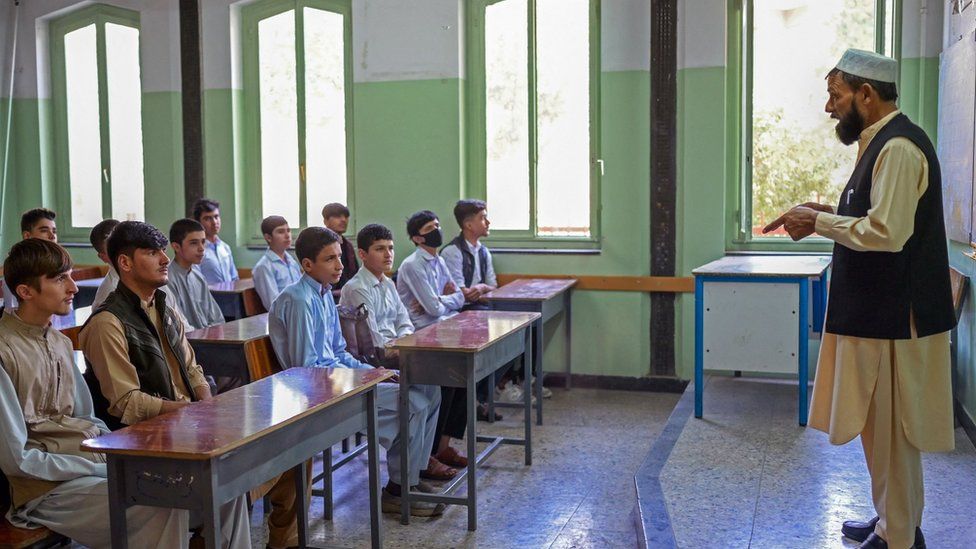Manas Dasgupta
NEW DELHI, Sept 18: Life is slowly returning to normal in the Taliban-controlled war-torn Afghanistan but the futures of Afghan women are still uncertain.
The Taliban has allowed boys in classes six to 12 to attend school and male teachers to resume teaching across Afghanistan from Saturday but there is no word about the girl students whether they will be allowed to return to schools fuelling further concerns that the hardline Sunni Pashtun group might impose restrictions on girls and women as was during its earlier rule 20 years ago.
The new Taliban ministry of education made the announcement in a statement on Friday, saying state and private schools at the primary and secondary level as well as official madrasa religious schools would be open from Saturday. “All teachers and male students should attend school,” the Taliban said in the statement.
Most educational institutions across Afghanistan have remained closed more than a month after the Taliban seized the capital Kabul. Girls up to Class 6 have attended classes at some of the schools that have managed to stay open and women have gone to segregated university classes. But high schools for girls have been closed in Afghanistan.
Taliban officials have promised that girls will be able to go to school so long as they do so in segregated classrooms and they have said they will not replicate the fundamentalist policies of the previous Taliban government, which banned girls’ education. However, women still are not allowed to continue their work in some of the provinces, with exceptions for those who have worked in health departments, hospitals and education.
The UN Children’s Fund (Unicef) has welcomed the reopening of schools in Afghanistan from Saturday but said girls must not be kept away from the classrooms. “We are deeply worried that many girls may not be allowed back at this time. Even before the most recent humanitarian crisis, 4.2 million children were not enrolled in school. Around 60 per cent of them are girls,” Unicef chief Henrietta Fore said in a statement on Friday.
“Girls cannot, and must not, be left behind. It is critical that all girls, including older girls, are able to resume their education without any further delays. For that, we need female teachers to resume teaching,” Fore added.
Unicef has said significant progress has been made in education in the country over the past two decades. “The number of schools tripled. The number of children in school increased from 1 million to 9.5 million,” it has said. The UN agency urged development partners to support education “for all children” in Afghanistan. “Unicef will continue to advocate with all actors so that all girls and boys have an equal chance to learn and develop the skills they need to thrive and build a peaceful and productive Afghanistan,” Fore stated.
As a sign of normalcy returning to the country, some Taliban soldiers cradling AK-47s and M16 assault rifles mingle among families at Kabul Zoo, a novelty experience for many of the young fighters from rural Afghanistan. As the zoo reopened for the visitors, many residents of Kabul, mostly women and children, made the enclosure a picnic spot to enjoy life after months of turmoil and several joined them. After years of fighting in the countryside, the capture of the capital was the first time many of the Taliban militants have entered a large city, let alone a zoo. The zoo was long a haven for women, children and young lovers in a capital that has little public space for anyone but men.

